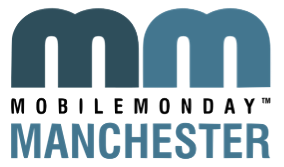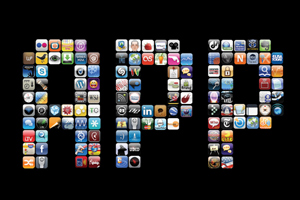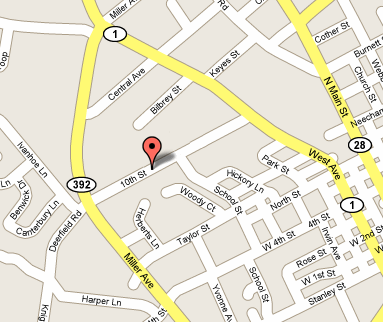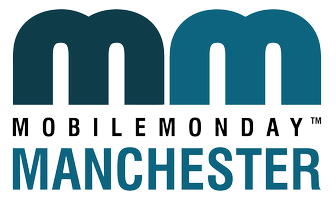Here’s something cool, a mobile accelerator run by people who actually know mobile, namely the good folks from Mobile Monday (disclosure: I am a co-founder of Mobile Monday Manchester). For those who don’t know (and I don’t expect many of the readers of this blog to being that ignorant… 😉 ): Mobile Monday has a global presence in over 140 cities across 50 different countries. As part of Mobile Monday, participants will get greater global exposure with leading brands to help foster business relationships and potentially commercial deals. It works, believe me!
This is a 12-week program (from 23 September – 6 December), run at RocketSpace in Silicon Valley with the aim to help accelerate mobile startups. They will select 8-10 startups from around the globe to participate in each class. If you are not based in the Bay Area, you’d have to cover your own housing and living though (which they say should amount to $2,500/month; also: you need to sort out your own visa should you need one though they’ll help you).
The program is designed for startup founders. It consists of weekly workshops and dinners lead by leaders of “global brands” who will help mentor and work closely with participating companies. You will have the opportunity to pitch their “dedicated” team of VCs and angels. The program will end with a Demo Day attended by industry leaders, VCs, and the press. So it’s pretty much the usual stuff. However, it being run by the MoMo folks, you can probably expect a rather good pick from the mobile world!
Here are the minimum criteria (and you will see from this that you actually have to have something already; this is an accelerator, not an incubator):
- At least 2 people in the startup (two’s company…);
- Shipping live product;
- Angel funding or Participation of a startup program or Experience as a founder in a prior startup;
- Pre-series A funding.
Each application will be scored on five criteria:
- Team
- Product
- Market viability
- Traction (clients, users, customers)
- Fit for mobile industry
All Mobile Monday Accelerator events will be held in the San Francisco bay area. Office space at the RocketSpace Innovation Campus (San Francisco downtown) is provided free to all accelerator class participants. RocketSpace is home to Fortune 500s like, T-Mobile, GM, DoCoMo, Microsoft, ABInBev, LEGO and to 150+ startups including Spotify, Supercell and HasOffers (yup, that is straight from their sales pitch).
The program currently provides 50+ of the best in mobile mentors; Samsung, Sony, Twitter, Facebook, AOL, ESPN, Polariod, PayPal, Intuit, The Weather Channel, Hotel Tonight, Millenial Media and more… (yup, again from their pitch)
Each week, they’ll host a workshop in the San Francisco bay area at our offices or a partner’s office on the usual topics like:
- Marketing
- Negotiation
- Monetization
- Legal
- Analytics and Tracking (if you still haven’t got this)
- UI/UX Best Practices
- Scaling (under the heading “luxury problems” but immensely important)
- Selling to the Enterprise
- M&A How to sell your startup (my guess is they won’t give guarantees though…)
- Effective Pitching
If you want to get into this (and, hey, it is just about the time when the weather in certain areas get somewhat yucky), you can apply here. Good luck!

 If you are in the North-West of England and have nothing to do or, rather, nothing really, really important to do, you may want to drop in for our latest
If you are in the North-West of England and have nothing to do or, rather, nothing really, really important to do, you may want to drop in for our latest  There has been (as you may have sharply derived from this post’s title) a
There has been (as you may have sharply derived from this post’s title) a  The challenge is to find a universal solution, I suppose. Jenson focuses merely on apps that – arguably – make a user’s life better if and when he/she is out and about and is looking for utilities to help mundane tasks/etc. There are tons of fairly one-dimensional apps for that: a retailer app for their catalogue, London tube map, some couponing app, a mobile banking app, apps using NFC, Bluetooth, camera (QR readers) and more. There will also be more complex ones: fancy AR-powered things, things like Foursquare (anyone near?), etc, etc. So, is this painful? Yes, it is. Would it be better if there was a seamless universal (cloud-based) solution that would make it “just so”? Oh, by all means.
The challenge is to find a universal solution, I suppose. Jenson focuses merely on apps that – arguably – make a user’s life better if and when he/she is out and about and is looking for utilities to help mundane tasks/etc. There are tons of fairly one-dimensional apps for that: a retailer app for their catalogue, London tube map, some couponing app, a mobile banking app, apps using NFC, Bluetooth, camera (QR readers) and more. There will also be more complex ones: fancy AR-powered things, things like Foursquare (anyone near?), etc, etc. So, is this painful? Yes, it is. Would it be better if there was a seamless universal (cloud-based) solution that would make it “just so”? Oh, by all means. It is possible to draw a map of this (and I would if I possessed more artistic skill) where you could derive on what is right for you: if you need access to hardware APIs (camera, 3D acceleration, Open GL ES, etc), native might be your way (one of the reasons why you are not seeing higher-end HTML5 games in large numbers yet). If you capture light-weight information-heavy content that relies on dynamic updates, a web “app” might be good for you, in other cases, a native app with some functionality coupled with a container for web functionality might be the right way.
It is possible to draw a map of this (and I would if I possessed more artistic skill) where you could derive on what is right for you: if you need access to hardware APIs (camera, 3D acceleration, Open GL ES, etc), native might be your way (one of the reasons why you are not seeing higher-end HTML5 games in large numbers yet). If you capture light-weight information-heavy content that relies on dynamic updates, a web “app” might be good for you, in other cases, a native app with some functionality coupled with a container for web functionality might be the right way. Tonight (11 July),
Tonight (11 July),